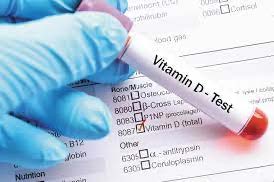Novel high-throughput method for vitamin D screening

Tech ID
22-057
Inventors
P. Britz-McKibbin
W. E. Helmeczi
Patent Status
Provisional patent filed
Stage of Research
Proof of principle data available
Contact
Sunita Asrani
Associate Director, Business Development and Copyright
Abstract
Vitamin D is an important fat-soluble prohormone with pleiotropic effects relevant to human health, which also functions as an immunomodulator of both the innate and adaptive immune system. There is an urgent need of a rapid screening platform for 25-hydroxyvitamin D (25OH-D) without chromatographic separation that offers better precision and accuracy than immunoassays.
McMaster researchers have developed a high throughput method for assessing vitamin D status from blood specimens based on direct infusion-tandem mass spectrometry (DI-MS/MS) following click derivatization using 2 nitrosopyridine. An optimized liquid-phase extraction protocol was developed to minimize ion suppression when directly infusing serum or plasma extracts via a capillary electrophoresis system for quantitative determination of 25OH-D. Acceptable reproducibility (mean CV = 10.9%, n=412), recovery (mean = 102% at 15, 30, and 45 nmol/L), and linearity (R2 > 0.998) was achieved for 25OH-D with lower detection limits (LOD ~ 1.2 nmol/L, S/N ~3), greater throughput (~3 min/sample), and less bias than a commercial chemiluminescence immunoassay prone to batch effects.
Overall, there was good mutual agreement in 25OH-D concentrations from reference blood samples analyzed by DI MS/MS (mean bias = 7.8%, n=18) as compared to LC-MS/MS that is suitable for routine screening despite the absence of 3-epi 25OH-D3 resolution. This method was also shown to reduce immunoassay misclassification of vitamin D deficiency within a cohort of critically ill children (n=30). DIMS/ MS offers a reliable alternative to LC-MS/MS in support of largescale epidemiological studies, and clinical trials to rapidly screen individuals who may benefit from vitamin D supplementation.
Applications
- This method offers a cost effective and high throughput platform for routine screening of vitamin D nutritional status in large populations that currently is not available. Vitamin D nutrition is critical for immune health that has been demonstrated to reduce respiratory infections, hospitalization and mortality, including COVID-19.
Advantages
- This method offers greater throughput and robustness than LC-MS/MS protocols while also being more accurate and reproducible than commercial immunoassays.

